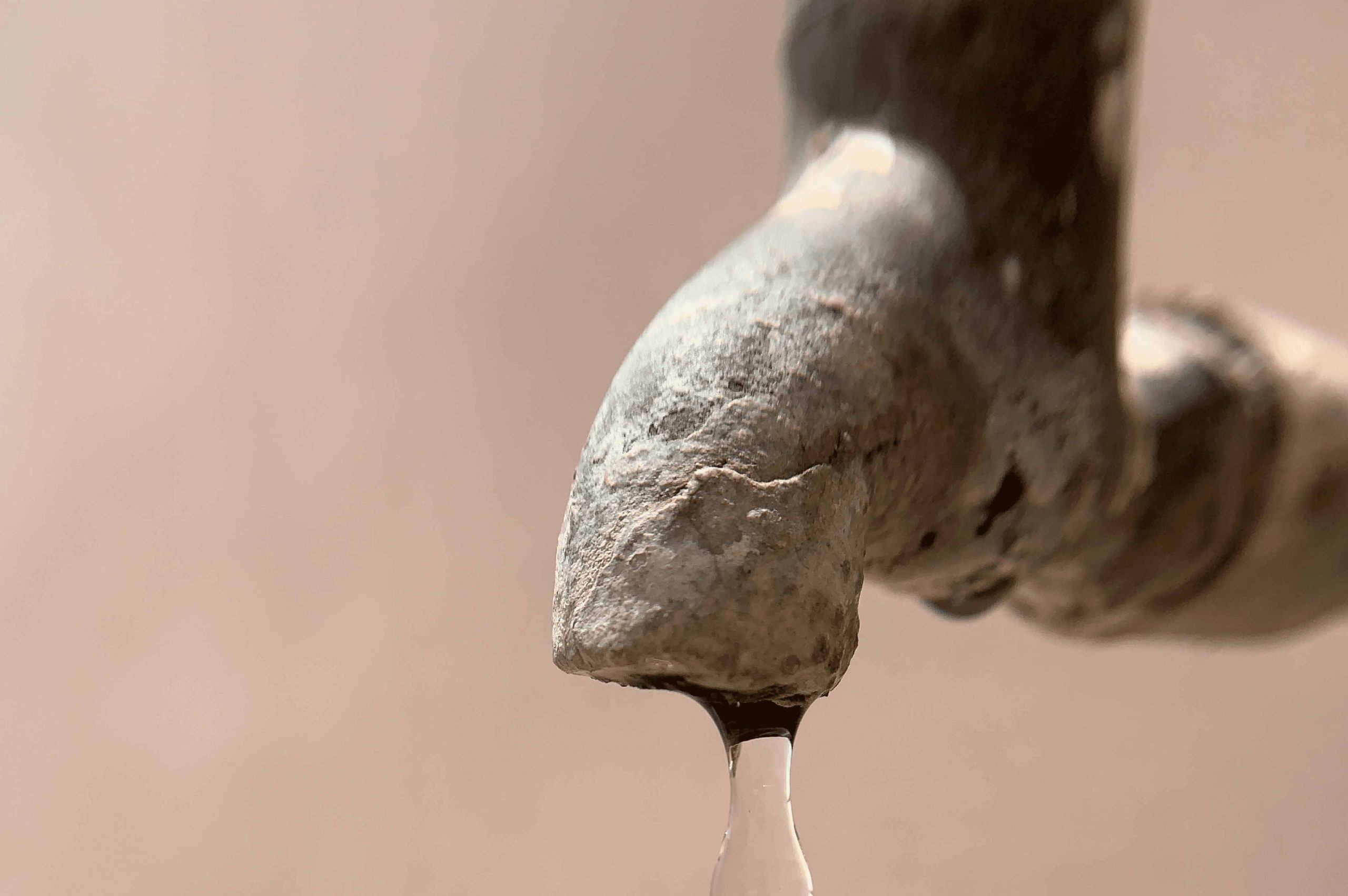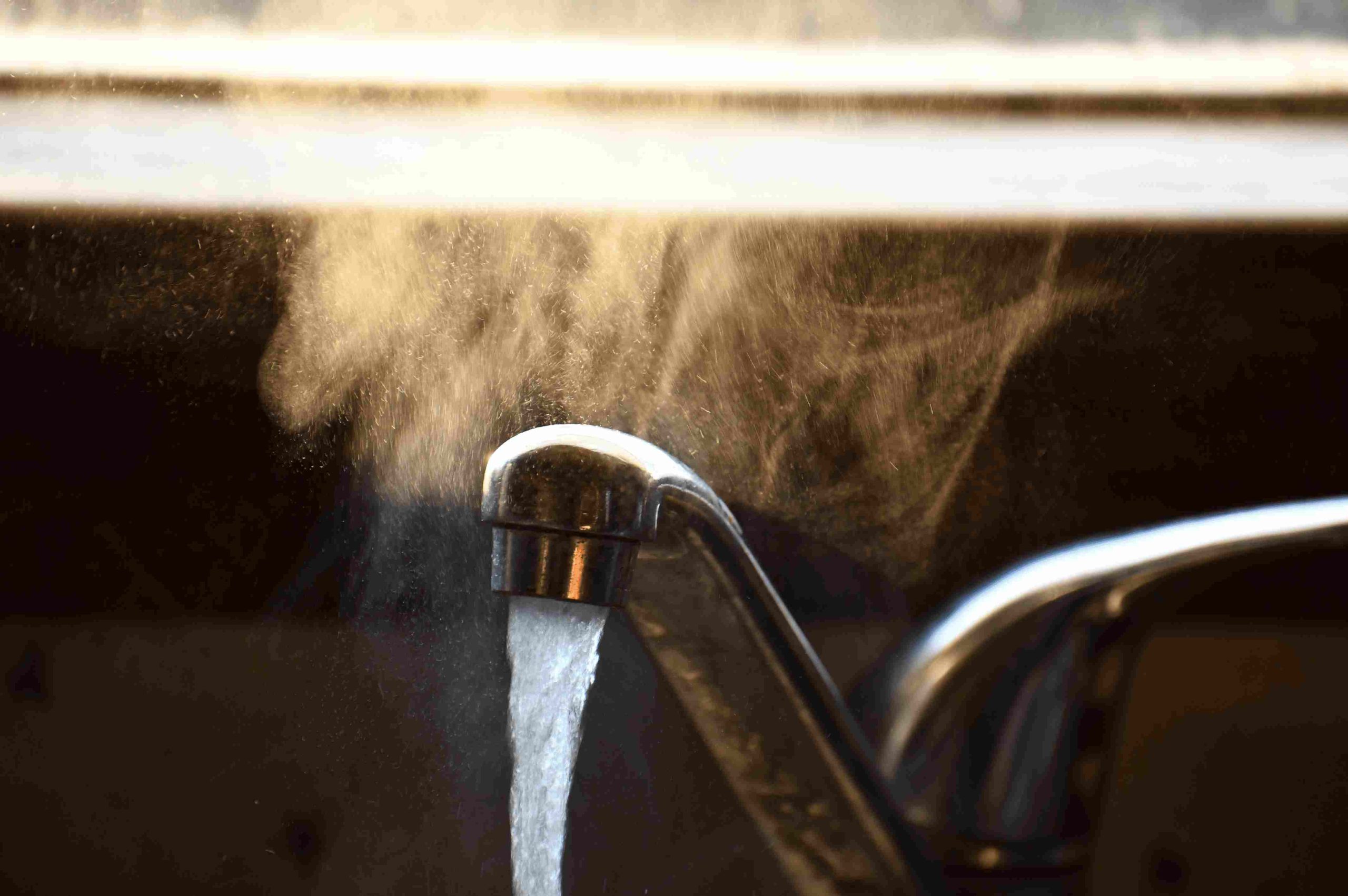
We often take our household appliances for granted, expecting them to function perfectly day in and day out.
Many homeowners don’t realize that the quality of water flowing through their pipes determines the efficiency and lifespan of these devices.
In this guide, we’ll delve into the effects of combining hard water and appliances, exploring how hard water interacts with different household devices, and more.

Hard water is a term used to describe water that has a high concentration of minerals, mainly calcium and magnesium ions.
While these minerals aren’t bad for our health, they damage our appliances over time.
Its effects go beyond just the visible scale buildup; it hinders the performance and efficiency of these devices.
Rayne Water has been providing clean water since 1928. Whether you need a residential water softening system for hard water problems or a water filtration treatment system for your commercial use, we have it all.
One common appliance affected by hard water is the dishwasher.
The formation of limescale within the dishwasher affects both its cleaning performance and lifespan.
Limescale is the result of mineral deposits, accumulating on the interior components of the dishwasher.
Over time, this buildup will delay the flow of water, reduce the effectiveness of detergent, and even clog the spray arms.
As a result, your dishes don’t come out as clean, and your dishwasher may require more maintenance.

Washing machines are another appliance vulnerable to the effects of hard water.
The presence of mineral deposits can affect both the efficiency of the machine and the condition of your clothing.
While this isn’t harmful to you, it doesn’t look very nice and could spoil your outfit for the day!
At Rayne Water, our water softeners will treat hard water and save you money from the very moment you begin to use them.
Inside a washing machine, hard water minerals build up in different areas, including the drum, heating element, and pipes.
The result? Less water flow, lower heating efficiency, and even damage to the machine’s internal parts.
The minerals in hard water make detergents less effective, leaving behind stains and residues on washed clothing.
The abrasive nature of mineral deposits on fabrics will cause them to wear out more quickly.
This emphasizes the hard water effects on appliances, specifically how it impacts the washing machine and your clothing.
If your clothes are constantly exposed to hard water, you’ll likely find yourself replacing them sooner than you think.

Hard water takes a toll on your water heater, which translates to a higher utility bill.
As hard water flows through your water heater, the minerals settle and collect on the heating element.
This insulating layer of scale makes it harder for the heating element to transfer heat to the water, meaning more energy consumption and longer heating times.
Even the fixtures that deliver water to us suffer from the effects of hard water.
Mineral buildup in faucets and showerheads reduces water flow and pressure, creating annoying clogs. This is one of the many hard water effects on appliances and household fixtures.
Regular cleaning and maintenance are essential to keep these fixtures functioning optimally.
The Rayne Water VIP Program ensures your system is performing at peak efficiency. Join today.

For those who enjoy a morning cup of coffee or tea, hard water may change the taste of your drinks and the longevity of your coffee maker and kettle.
Got an ice maker in your freezer? Hard water can result in scaling within the ice maker. This affects the quality of ice you use for your drinks.
It’s crucial to grasp the connection between hard water and appliances, especially when it comes to your ice maker’s performance.

When connecting hard water and appliances, one of the most concerning aspects is its potential to shorten their lifespan.
Mineral buildup accelerates wear and tear on key components of appliances. Over time, this will require expensive repairs or the need to replace the appliance altogether.
Inefficient appliances, worn down by the effects of hard water, will likely consume more energy. As homeowners, we want to maximize our appliances’ efficiency and minimize operating costs.
To ensure the longevity of your appliances in hard water areas, learn to be proactive.
Regular cleaning and maintenance help prevent and address the effects of hard water. This includes descaling appliances, replacing worn-out parts, and following manufacturer guidelines for upkeep.
By following a consistent maintenance routine and addressing issues right away, you’ll protect your appliances, extend their lifespan, and minimize the impact of hard water and appliances on your household.
Just like a car needs oil and regular maintenance to perform its best, so do your water softener, conditioner, and reverse osmosis systems. Join the Rayne Water VIP Program today for exclusive offers on our services.
Water softeners are perfect for tackling the issues of combining hard water and appliances.
There are also other steps you can take to extend the lifespan of your appliances, including regular maintenance, using appropriate detergents, and following manufacturer recommendations.
Moreover, the effects of hard water and appliances are far-reaching and costly. From dishwashers and washing machines to water heaters and coffee makers, the impact is felt throughout your home.
But with the right knowledge and measures, you can ensure your appliances serve you well for years to come.
Remember, addressing the question “Does hard water damage appliances?” is essential for maintaining the functionality of your household devices.
Take action today to protect your investments and enjoy the benefits of efficient, long-lasting devices. If you have any questions or need assistance with water treatment solutions, please contact us.
What is hard water, and how does it affect appliances?
Hard water, characterized by high levels of minerals like calcium and magnesium ions, is a common issue in households. While safe to drink, hard water wreaks havoc on household appliances. As it courses through devices such as dishwashers, washing machines, and water heaters, it leaves behind mineral deposits, often called limescale.
Does hard water damage appliances?
Yes, hard water damages appliances over time. The consequences of hard water damage include poor performance, higher energy consumption, and a shortened lifespan for your appliances.
How does hard water affect washing machines?
Hard water can have noticeable effects on washing machines. When you use hard water in your machine, the minerals, especially calcium and magnesium, stick to its parts like the drum and heating elements. Over time, these deposits build up and start causing issues. For instance, if the water inlet valve gets clogged with these minerals, the machine might take longer to fill up with water. Similarly, draining becomes slower. In the long run, this will wear out the machine faster and require expensive repairs or replacements. Always keep an eye on how your machine functions and consider water softening solutions to help avoid these issues.
Do water softeners really work in preventing hard water damage to appliances?
Yes, water softeners are great at preventing hard water damage to appliances. A water softener removes the calcium and magnesium ions responsible for water hardness, replacing them with sodium or potassium ions through a process called ion exchange. By reducing the mineral content in your water, water softeners prevent limescale buildup in appliances. This not only enhances the performance and efficiency of your appliances but also extends their lifespan. Water softeners are a great solution to fighting hard water effects on appliances throughout your home.
What can I do to prolong the lifespan of my appliances in a hard water area?
First and foremost, regular maintenance is essential. This includes descaling appliances, cleaning filters, and following manufacturer-recommended maintenance schedules. Additionally, using detergents and cleaning products designed for hard water is helpful. Installing a water softener is a highly effective long-term solution, as it reduces the hardness of the water at the source, protecting all appliances in your home. Lastly, staying informed about the water quality in your area and taking proper measures, such as periodically checking for limescale buildup, can go a long way in ensuring the longevity of your appliances.